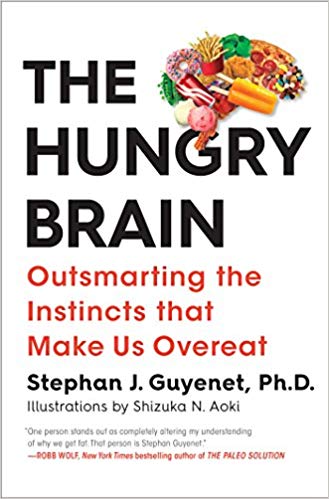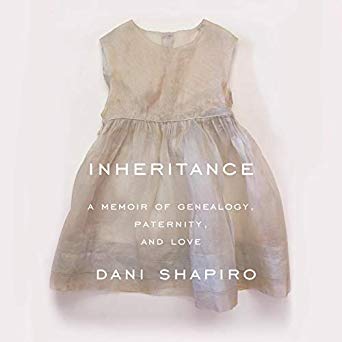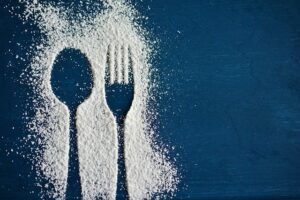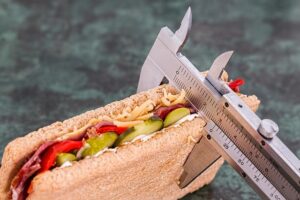 In the previous post I discussed what the popular “food sensitivity” tests are actually testing, which is exposure and not actual food reactions. This one fact explains why the lists of forbidden foods that people get are so similar: a conventional American diet is going to have lots of gluten, dairy, and corn, with probably a lesser amount of soy. Getting rid of these four items will mean, for most people, a huge shift in their eating, often coming with the possibility of the loss of important nutrients. But the
In the previous post I discussed what the popular “food sensitivity” tests are actually testing, which is exposure and not actual food reactions. This one fact explains why the lists of forbidden foods that people get are so similar: a conventional American diet is going to have lots of gluten, dairy, and corn, with probably a lesser amount of soy. Getting rid of these four items will mean, for most people, a huge shift in their eating, often coming with the possibility of the loss of important nutrients. But the
 Debi Simons
Debi Simons
Food Sensitivity Testing–Science or Scam?
 I don’t know how many people reading this post are following a food-sensitivity diet regimen or are supporting someone who is, but I’m sure there are some. So let me say first of all that my purpose here is not to offend but to inform. I got a little tickled/horrified recently with some comments regarding my keto diet posts. One woman said, in essence, “Why is Debi doing this? She’s not going to make any money by keto-diet bashing.” Then she named some diet celebrity whose
I don’t know how many people reading this post are following a food-sensitivity diet regimen or are supporting someone who is, but I’m sure there are some. So let me say first of all that my purpose here is not to offend but to inform. I got a little tickled/horrified recently with some comments regarding my keto diet posts. One woman said, in essence, “Why is Debi doing this? She’s not going to make any money by keto-diet bashing.” Then she named some diet celebrity whose
What’s the Connection Between Your Brain and Your Stomach?

The Hungry Brain: Outsmarting the Instincts that Make Us Overeat by Stephan Guyenet, Ph.D., originally published in 2017, now available in several formats. I accessed the book via Audible.com.
This is a book that mixes immensely practical, down-to-earth information and advice about our current diet and health issues with somewhat-technical information about the actual biology of the brain. I found some of the biological sections to be rather frustrating, as Guyenet seems to subscribe to the idea that all of our thoughts, desires, motivations, decisions and choices can be boiled down to biochemical reactions at the cellular level. So in an early chapter he goes into an explanation about how our “lizard” brain (or, in this book, our “lamprey” brain) functions, with “feedback loops” putting in “bids.” Guyenet is careful to say that whole process is how scientists understand this all might work, as there’s no way
Some Small Starting Points
 I’m doing something a little self-indulgent today, writing a post that explains how I got into the three fields of writing I focus on:
I’m doing something a little self-indulgent today, writing a post that explains how I got into the three fields of writing I focus on:
1) food/nutrition/diets/hospitality
2) literary and historical backgrounds about composers and their works, with an emphasis on the texts
A Weighty Book on a Weighty Subject that You Should Totally Read
 The Elephant in the Room: One Fat Man’s Quest to Get Smaller in a Growing America by Tommy Tomlinson, 2019, available in several formats. I strongly recommend the audiobook version, as Tomlinson reads it himself and has a very distinctive voice stemming from his surgery for throat cancer over a decade ago. The voice adds to the whole experience. (Amazon Affiliate link)
The Elephant in the Room: One Fat Man’s Quest to Get Smaller in a Growing America by Tommy Tomlinson, 2019, available in several formats. I strongly recommend the audiobook version, as Tomlinson reads it himself and has a very distinctive voice stemming from his surgery for throat cancer over a decade ago. The voice adds to the whole experience. (Amazon Affiliate link)
I hope that Tommy Tomlinson makes a million dollars net profit after taxes from this book, and I did my part by buying the audiobook instead of putting it on hold at the library. The book is actually several genres in one, any one of which would be worth the purchase price:
1) It’s a vibrant, beautifully-written and meticulous memoir of a childhood in the Deep South. Tomlinson’s parents are descended from sharecroppers (whom we tend to think of as
Should you become part of the Brady Bunch?
Hi folks!
I should have posted this right after the Super Bowl, when (sigh) Tom Brady pulled it out yet again. At least everybody said it was the most boring SB ever. I don’t care much for Tom Brady—can you tell? Of course, one might ask, “Who asked you, Debi?” And I give him full, full props for his total unflappability and steel under fire. Hey, arrogance has its upside.
Anyway, though, I hadn’t realized that Mr. Brady, just like every other celebrity on the planet, has his own very special diet plan with his own very special science. Well, it’s actually his guru who has all
Paleo Diet Pitfalls
 On to the next fad diet floating around out there! Remember, you don’t need me yammering at you in order to be able to evaluate these ideas. There are very, very simple things to look for:
On to the next fad diet floating around out there! Remember, you don’t need me yammering at you in order to be able to evaluate these ideas. There are very, very simple things to look for:
1. Does the diet have a gimmick or a hook? In the case of the paleo diet, the gimmick is the idea that we need to return to those halcyon days when life expectancy was less than 30 years, there were no antibiotics, and you were in constant danger of starvation. Right, those days!
2. Does the diet have a solid basis in fact or is it just “science-y”? The premise of the paleo diet is that not enough time has passed in our evolutionary history from our hunter-gatherer days (say 10,000 years ago) till now for our bodies to adjust to our modern diet, specifically the food we eat that comes
Is It Better to Know the Truth–About Diets or Anything Else?

Inheritance: A Memoir of Genealogy, Paternity, and Love by Dani Shapiro, available in multiple formats.
This is a pretty interesting book, and I enjoyed reading it. Dani Shapiro is an accomplished and best-selling author of several previous memoirs and novels. If you like real-life mysteries, especially ones that involve delving into the past, you’ll probably get seriously drawn into the story. I read it in big chunks over the course of a couple of days.
The plotline of the book centers around Shapiro’s discovery, by way of an impulsive DNA test, that the man she considered to be her father, whom she loved and revered, was not. She had been conceived with the help of a sperm donor. I won’t give away more of the story as I don’t think that’s fair, so you’ll have to read the book to find out if she finds her biological father and how she handles all the fallout. But here’s the central question for the purpose of my post today: Would she have been better off not to have known? Or, to put it the other way: Is it always better to know the truth?
All Calories Count, but Sugar Calories Count Especially
 All calories count, but they don’t all count the same, I said in my last post. So I ended with the horrible prospect of how many grams of sugar are in a 32-ounce Big Gulp regular soda. (At some point I’ll take on the diet soda industry, but not today.) 72 grams of sugar all dumped into the bloodstream at once constitute an EMERGENCY. Remember, these liquid sugar calories basically pass right through the stomach and into your small intestine where they’re absorbed. Alarm bells are going off and your pancreas is pumping out insulin at a mile-a-minute clip. And the system is proactive as well as reactive; your digestive system doesn’t wait for nutrients to hit it before swinging into action.
All calories count, but they don’t all count the same, I said in my last post. So I ended with the horrible prospect of how many grams of sugar are in a 32-ounce Big Gulp regular soda. (At some point I’ll take on the diet soda industry, but not today.) 72 grams of sugar all dumped into the bloodstream at once constitute an EMERGENCY. Remember, these liquid sugar calories basically pass right through the stomach and into your small intestine where they’re absorbed. Alarm bells are going off and your pancreas is pumping out insulin at a mile-a-minute clip. And the system is proactive as well as reactive; your digestive system doesn’t wait for nutrients to hit it before swinging into action.
All Calories Count, But Not All Calories Count the Same
 Nothing stays in Vegas. That’s our starting point here: that every calorie you consume has to get used or disposed of by your body in some way. No calories simply disappear into thin air (although they may disappear somewhere else, as noted below). No calories are “free.” Every single molecule you eat must be dealt with. Your body doesn’t function like a car’s gas tank, when there’s an absolute limit of capacity that results in gasoline on the ground (and the gas station owner yelling at you) if you keep trying to outwit the automatic shutoff by “topping off” the tank and manually restarting the pump. Your esophagus doesn’t have an automatic shutoff valve. I’m not even sure where that organ would be best situated: above the larynx? Halfway between the mouth and the stomach? There’d be a food backup, I guess. Kind of gross, and maybe dangerous. You certainly can get into the “I can’t eat another bite” mode, but in reality the stomach’s capacity is very flexible and expandable. (Just ask the people who’ve had stomach-reduction surgery that leaves them with a greatly diminished stomach pouch. If they’re determined enough, they can outwit the surgery, either by eating constant small meals that don’t overstrain the new little pouch or by going ahead and eating too much. The pouch can stretch, eventually. Read about this and other dangers of the surgery at “Long-Term Complications after Gastric-Sleeve Surgery.”)
Nothing stays in Vegas. That’s our starting point here: that every calorie you consume has to get used or disposed of by your body in some way. No calories simply disappear into thin air (although they may disappear somewhere else, as noted below). No calories are “free.” Every single molecule you eat must be dealt with. Your body doesn’t function like a car’s gas tank, when there’s an absolute limit of capacity that results in gasoline on the ground (and the gas station owner yelling at you) if you keep trying to outwit the automatic shutoff by “topping off” the tank and manually restarting the pump. Your esophagus doesn’t have an automatic shutoff valve. I’m not even sure where that organ would be best situated: above the larynx? Halfway between the mouth and the stomach? There’d be a food backup, I guess. Kind of gross, and maybe dangerous. You certainly can get into the “I can’t eat another bite” mode, but in reality the stomach’s capacity is very flexible and expandable. (Just ask the people who’ve had stomach-reduction surgery that leaves them with a greatly diminished stomach pouch. If they’re determined enough, they can outwit the surgery, either by eating constant small meals that don’t overstrain the new little pouch or by going ahead and eating too much. The pouch can stretch, eventually. Read about this and other dangers of the surgery at “Long-Term Complications after Gastric-Sleeve Surgery.”)